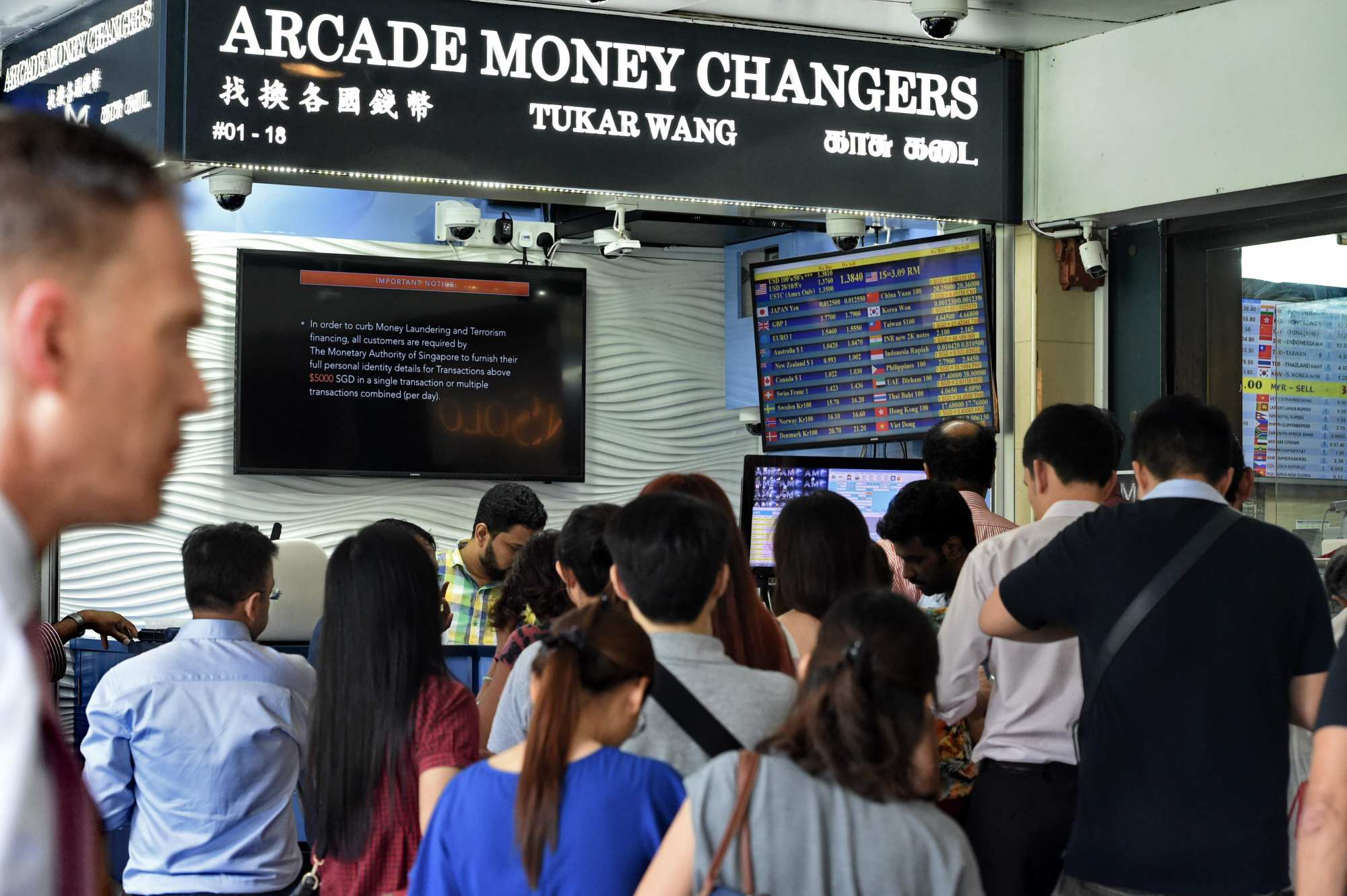Singapore remittance clampdown: innocent funds caught in China’s anti-money-laundering crusade, experts say
[ad_1]
Cross-border payment experts said innocent money remitters in Singapore were likely caught up in increasingly common money laundering raids by Beijing that freeze Chinese accounts as part of their investigations.
China has been stepping up its crackdown on money laundering activities by criminals such as scammers who use “money mules”, third party individuals or company brokers, to move funds without physical transfers, they said.
What we know so far about Singapore’s US$1.3 billion money laundering case
What we know so far about Singapore’s US$1.3 billion money laundering case
Mules, or “smurfs” as they are sometimes called, are used by criminals around the globe to launder ill-gotten money, usually through undetectable small deposits into and transfers out of legitimate bank accounts. But many remittance businesses have also used mules to “transfer” funds.
For remittance businesses, mules – some of whom have local licences themselves – are cheaper than official bank handling services, resulting in significant foreign currency savings to consumers. They also get around cross-border payment hurdles such as China’s controls on capital transfers of 50,000 yuan (US$7,000) or more.
The “underground” banking network in China is deep and complex, said Ella Mak, co-founder of Singapore fintech company Aleta Planet, which facilitates global payments through well-known card networks.
The mainland Chinese network also extends into Hong Kong, Singapore and various Southeast Asian countries, Mak added.
“It’s a well-knitted web … but because it’s a web, if you find one party in the web, it could lead to everybody else,” she said.
“Since 2011, Chinese authorities have been actively implementing different policies to weed out these mule accounts. But it’s not a few thousand but millions of accounts … the money exchange business in China is as old as banking.”

Mak said Chinese authorities have been making their way from cracking down on larger deals to those involving small businesses and individuals such as remittance customers.
Chinese authorities will not only freeze a suspicious mule account but all the accounts the mule has been sending money to and taken money from, Mak said.
“This is China stepping up its efforts to combat money laundering, to ensure that funds flowing in and out of China must be legitimate,” she said, adding that these efforts tie in with Beijing’s goal of sharpening its burgeoning economy’s financial systems.
The Monetary Authority of Singapore (MAS), the city state’s central bank, and the nation’s police force said that three remittance businesses – Hanshan Money Express, Samlit Moneychanger and Zhongguo Remittance – as well as 39 customers, were affected in the latest imbroglio.
So far, the police have received more than 670 reports of remittances being frozen amounting to S$13 million (US$9.8 million) but said this was a “small minority of total remittance transactions through remittance companies”.
About 430 of the reports involved Samlit Moneychanger, MAS and the police said.
Singapore’s US$1.3 billion probe exposes Chinese criminals’ paid-for passports
Singapore’s US$1.3 billion probe exposes Chinese criminals’ paid-for passports
Some of these businesses have assisted in foiling scams in the past but they have also been implicated in recent money laundering cases, according to local media.
These companies might find it hard to recover funds for their customers as they too have paid out the funds, a compliance expert at a Singapore payments service fintech, who did not want to be named, told This Week in Asia. He added that it could be a long time before victims would get their money back.
“The Chinese authorities won’t know how to segregate the clean funds from the dirty funds,” he said.
“[I suspect] the fastest way to get the money back is to bring your receipt, police report, documentary proof and go to China and ask authorities to release the funds.
“It’s beyond Singapore, because the money is already in China,” the compliance expert said.
In the meantime, other countries that have had favourable exchange rates with China could also find themselves implicated in Beijing’s crackdown, he said.
Australia raids ‘sophisticated’ Chinese crime ring operating in ‘plain sight’
Australia raids ‘sophisticated’ Chinese crime ring operating in ‘plain sight’
Fanson Yip, founder of Money Chain, one of the biggest independent money remittance businesses in Australia, said there had not seen any red flags over Chinese transfers from the country.
However, he said an account freeze by China was likely linked to investigations into illegal activity and any kind of foreign exchange deal that was too good to be true was also possibly “dodgy”.
“I think many use these third parties like a platform and it’s not just China, they do it in India, Pakistan, Malaysia, the Philippines, everywhere,” he said.
A representative of AUSTRAC, the Australian government financial intelligence agency responsible for monitoring financial transactions to identify money laundering and other financial crimes, told This Week in Asia that it had collaborated closely with Chinese authorities on mutual financial crime threats but could not comment on “specific operational matters”.
The latest suspension in Singapore comes after the authorities in August cracked the nation’s biggest money laundering case involving S$2.8 billion (US$1.3 billion) in assets.
[ad_2]
Source link

